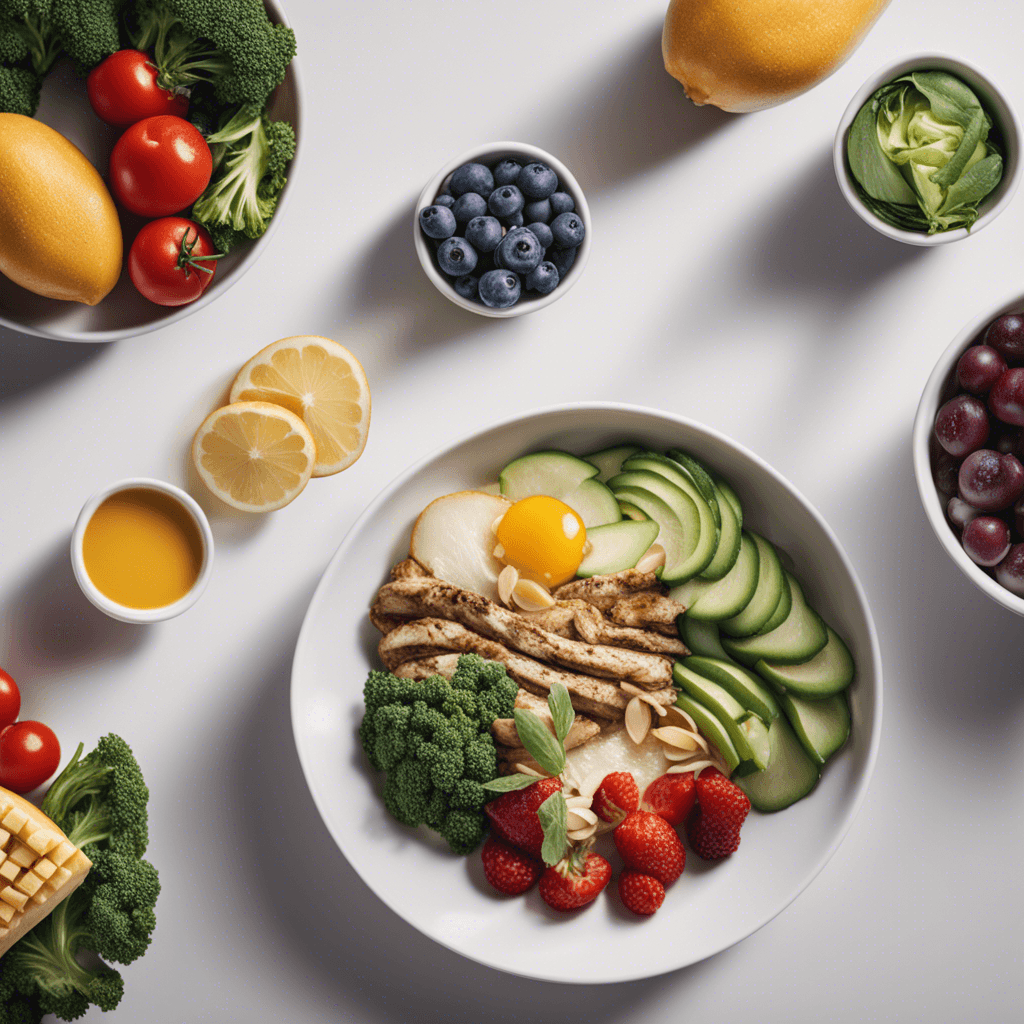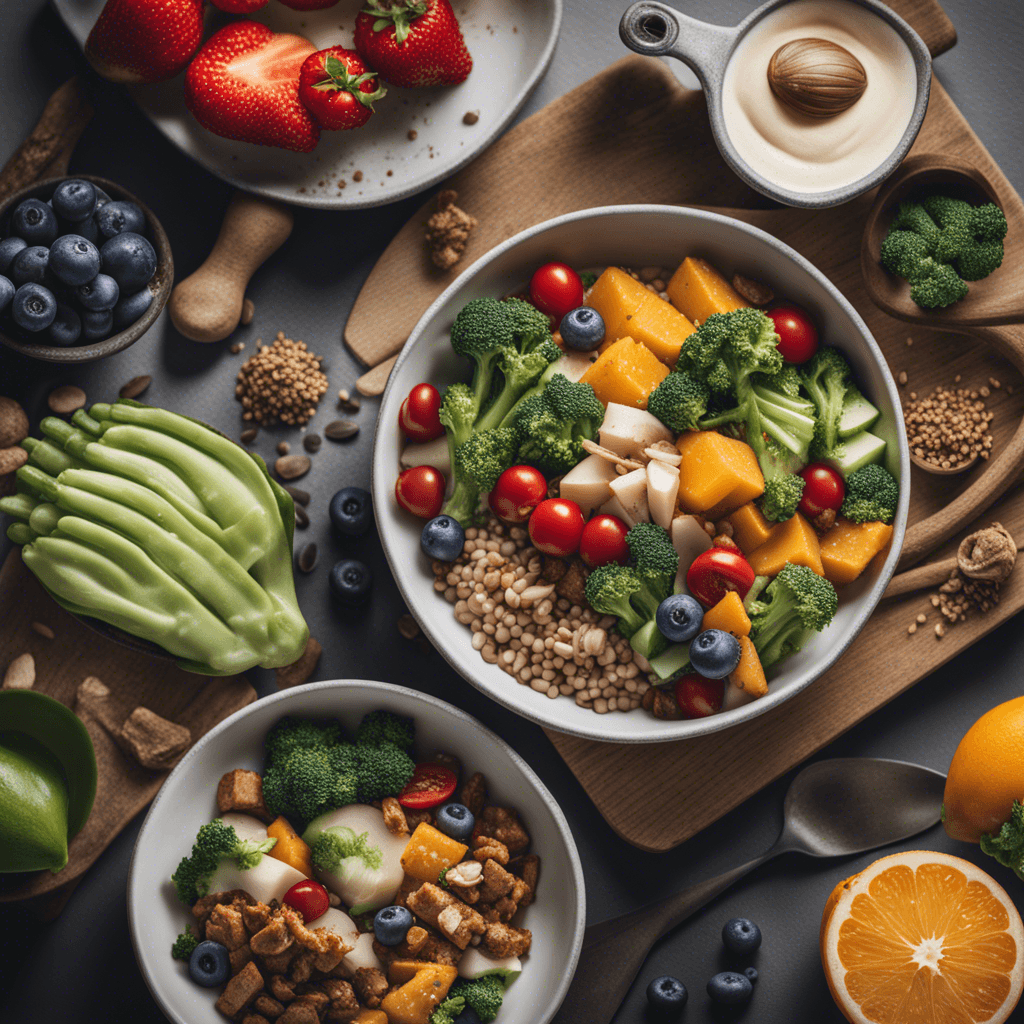Building a Nutrient-Dense Meal Plan for Lasting Wellness
In today’s fast-paced world, the importance of a nutrient-dense meal plan cannot be overstated. A well-structured diet not only fuels our bodies but also plays a crucial role in maintaining overall health and well-being. The journey to lasting wellness begins with understanding what a balanced nutrition plan entails and how it can be tailored to individual needs. A nutrient-dense meal plan focuses on incorporating whole foods that provide essential vitamins, minerals, and other nutrients necessary for optimal health. This article aims to guide you in crafting a meal plan that not only supports your physical health but also enhances your mental and emotional well-being.

One of the most significant aspects of healthy eating is recognizing the effects of dehydration on well-being. Dehydration can lead to fatigue, cognitive decline, and a host of other health issues that can derail even the best-laid meal plans. Therefore, hydration should be an integral part of any wellness diet. By emphasizing whole foods that are rich in water content, like fruits and vegetables, we can ensure that our bodies remain hydrated while also benefiting from the nutrients these foods provide. This article will explore various components involved in building a nutrient-dense meal plan, practical strategies for meal planning for health, and how to maintain balanced nutrition throughout the week.
Understanding Nutrient Density and Its Importance
Nutrient density refers to the amount of essential nutrients a food contains relative to its calorie content. Foods that are high in nutrient density provide a wealth of vitamins, minerals, fiber, and antioxidants while keeping calorie counts low. This is particularly important for individuals looking to maintain or lose weight without sacrificing health. Examples of nutrient-dense foods include leafy greens, berries, nuts, seeds, lean proteins, and whole grains. Incorporating these foods into your diet can lead to improved health outcomes, increased energy levels, and enhanced overall wellness.
Conversely, many processed foods are low in nutrient density as they often contain high levels of added sugars, unhealthy fats, and empty calories. Diets high in these foods can lead to nutrient deficiencies, weight gain, and increased risk of chronic diseases. Understanding the concept of nutrient density is fundamental when planning meals that promote lasting wellness. By focusing on whole foods, you can create a balanced nutrition plan that nourishes your body and supports your long-term health.
Evaluating Food Choices
When evaluating food choices for your nutrient-dense meal plan, it is essential to adhere to the principle of whole foods. Whole foods are minimally processed and retain most of their natural nutrients. This includes fruits, vegetables, legumes, whole grains, nuts, and seeds. For instance, choosing brown rice over white rice offers more fiber and nutrients, making it a better option for maintaining energy levels and promoting digestive health.
In addition, incorporating a variety of colors in your meals can ensure a broad spectrum of nutrients. For example, a colorful salad featuring spinach, carrots, tomatoes, and bell peppers can provide a range of vitamins and antioxidants. This diversity not only makes meals visually appealing but also enhances nutritional value, making it easier to achieve your wellness goals.
Practical Meal Planning Strategies
Creating a nutrient-dense meal plan requires thoughtful preparation and organization. One effective strategy is to dedicate a specific day each week to meal planning and preparation. This could involve cooking large batches of grains, proteins, and vegetables that can be easily assembled into meals throughout the week. For instance, roasted vegetables can be portioned out as side dishes, while grilled chicken can be used in salads, wraps, or grain bowls.
Another practical meal planning strategy is to utilize a variety of cooking methods. Steaming, roasting, grilling, and sautéing can all preserve the nutrients in your food while adding different flavors and textures. For example, steaming broccoli retains more nutrients than boiling, while roasting carrots can enhance their natural sweetness. Experimenting with different cooking methods can keep your meals exciting and help you stay committed to your wellness diet.
Incorporating Healthy Snacks
Healthy snacking is another essential component of a nutrient-dense meal plan. Instead of reaching for processed snacks high in sugar and fat, consider options like fresh fruits, raw vegetables with hummus, or mixed nuts. These snacks not only provide essential nutrients but also help maintain energy levels between meals. For instance, a small handful of almonds or a piece of fruit can provide a quick energy boost without the crash associated with sugary snacks.
Additionally, preparing snacks in advance can help curb unhealthy cravings. Portioning out servings of nuts or cutting up vegetables into snack-sized pieces can make healthy eating more convenient. Having these options readily available can prevent impulsive choices and support your commitment to balanced nutrition.
Hydration: The Unsung Hero of Wellness
Hydration is often overlooked in meal planning, yet it is critical for maintaining overall health. Water plays a vital role in nearly every bodily function, including digestion, circulation, and temperature regulation. Dehydration can lead to numerous health issues, including fatigue, headaches, and decreased cognitive function. Therefore, incorporating hydrating foods like cucumbers, watermelon, and leafy greens can significantly impact your hydration levels and overall well-being.
Moreover, being mindful of your fluid intake throughout the day can enhance your nutrient-dense meal plan. Aim to drink at least eight 8-ounce glasses of water daily, and consider incorporating herbal teas or infused waters for added flavor without the extra calories. Keeping a water bottle handy and setting reminders can help you stay on track with your hydration goals.
Recognizing Signs of Dehydration
Understanding the signs of dehydration is essential for maintaining wellness. Symptoms can range from mild, such as dry mouth and fatigue, to more severe signs like dizziness and confusion. By recognizing these signs early, you can take proactive steps to rehydrate and restore balance. For instance, if you notice a decrease in energy levels during the day, it might be an indicator that you need to increase your water intake.
Incorporating hydrating foods into your meals can also be beneficial. For example, adding a salad made with lettuce, cucumbers, and tomatoes to your lunch not only provides essential nutrients but also contributes to your overall fluid intake. Monitoring your hydration status and making adjustments can significantly impact your wellness journey.

Frequently Asked Questions
What is a nutrient-dense meal plan?
A nutrient-dense meal plan focuses on incorporating foods that offer the most nutritional benefits per calorie. These foods are rich in vitamins, minerals, and fiber, which support overall health and well-being. By prioritizing whole foods like vegetables, fruits, whole grains, and lean proteins, you can create meals that nourish your body and promote lasting wellness.
How can I stay hydrated throughout the day?
Staying hydrated requires conscious effort. Aim to drink water regularly throughout the day, especially when you’re active or in warm weather. Set reminders on your phone, keep a refillable water bottle with you, and consume foods with high water content, like cucumbers and oranges, to maintain hydration levels.
What are the effects of dehydration on well-being?
Dehydration can have significant negative effects on well-being, including fatigue, headaches, and decreased cognitive function. It can also lead to mood swings and irritability, impeding your ability to make healthy choices. By prioritizing hydration, you can enhance your physical and mental performance, supporting your overall wellness journey.
Can healthy snacks really make a difference in my meal plan?
Absolutely! Healthy snacks play a crucial role in maintaining energy levels and preventing unhealthy cravings. By incorporating nutrient-dense snacks like fresh fruits, raw vegetables, or a handful of nuts, you can enhance your meal plan and ensure you are getting adequate nutrition throughout the day.
What are some tips for effective meal planning for health?
To effectively plan meals for health, consider dedicating a specific day each week for meal prep. Cook large batches of grains and proteins, and portion out snacks in advance. Additionally, experiment with a variety of cooking methods and flavors to keep meals exciting and enjoyable. Regularly reviewing and adjusting your meal plan will help you stay committed to your wellness goals.
Conclusion
Building a nutrient-dense meal plan is a vital step towards lasting wellness. By prioritizing whole foods, staying hydrated, and employing practical meal planning strategies, you can create a diet that not only nourishes your body but also supports your mental and emotional health. Remember that healthy eating is not about deprivation; it’s about making informed choices that enhance your quality of life.
As you embark on your journey towards balanced nutrition, be patient with yourself and allow for flexibility. Life is dynamic, and your meal plan should accommodate changes in schedule, preferences, and availability of seasonal ingredients. By embracing a whole foods diet and maintaining a focus on hydration, you can achieve sustained well-being and a healthier lifestyle.
Video Topics Suggestions
- How to Create a Week-Long Nutrient-Dense Meal Plan
- Top 10 Hydrating Foods for Optimal Well-Being
- Meal Prep Tips for Busy Individuals: Healthy Eating Made Easy


